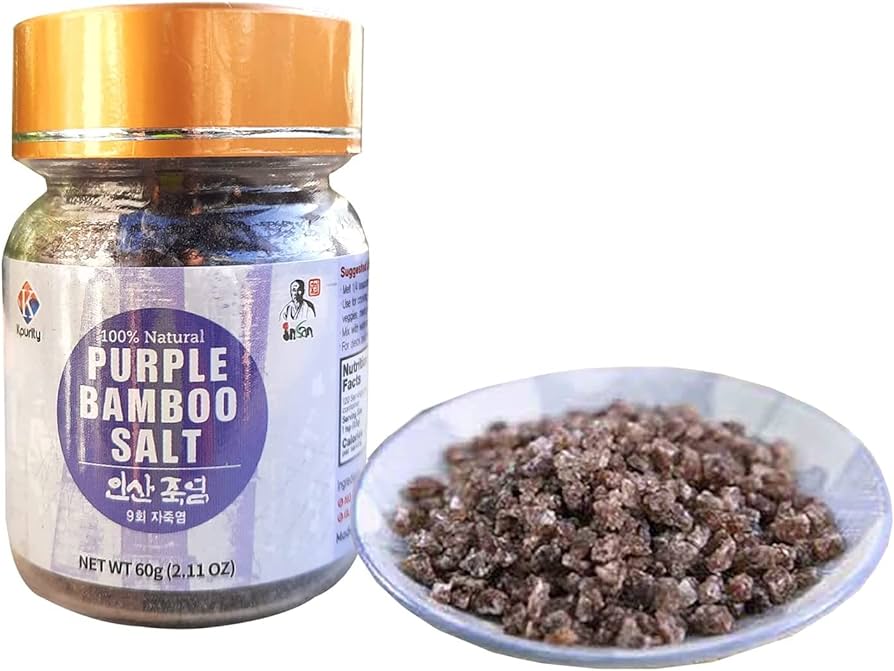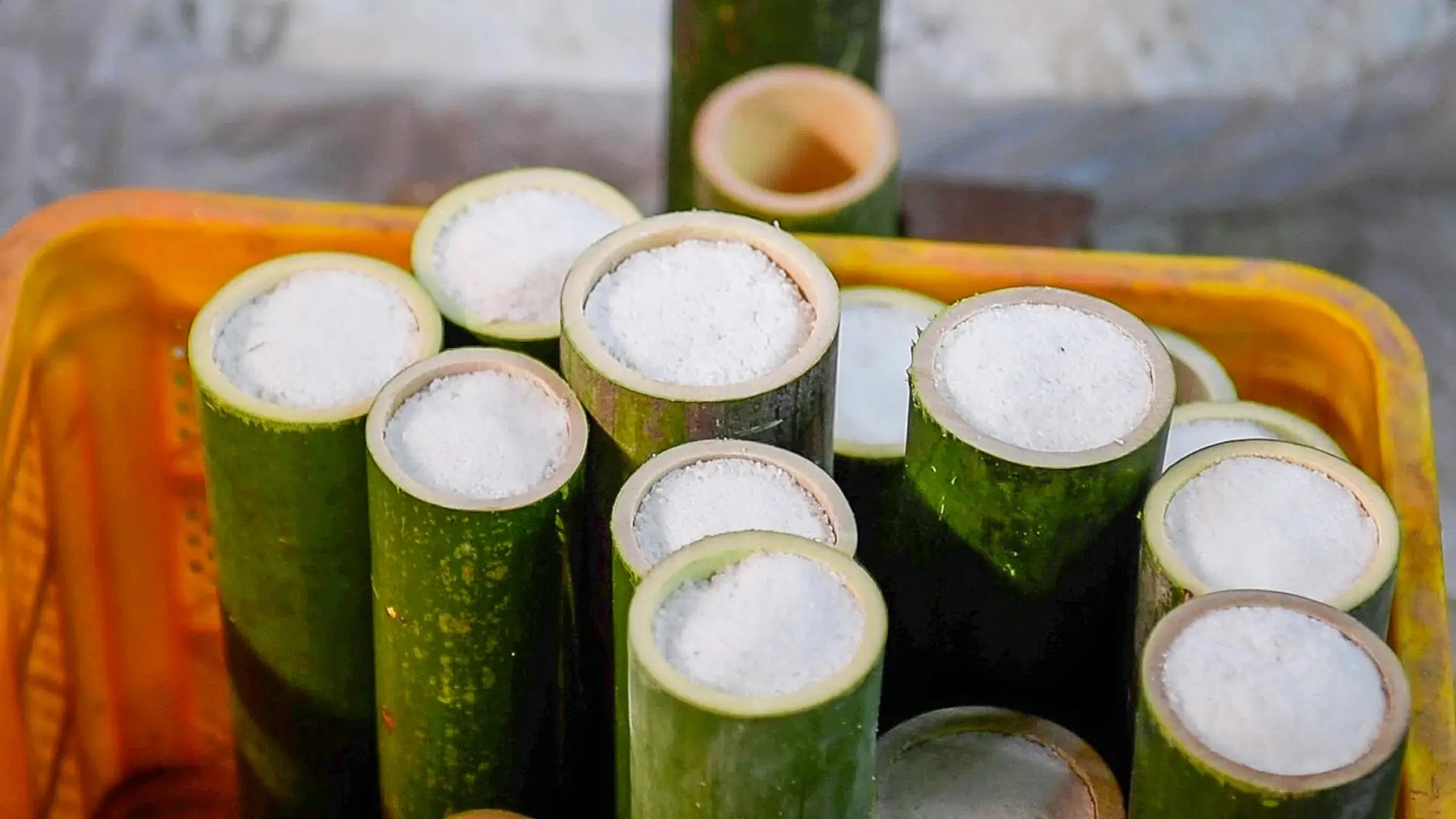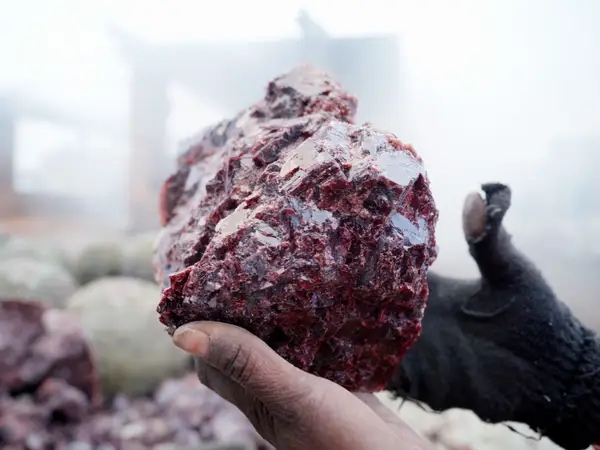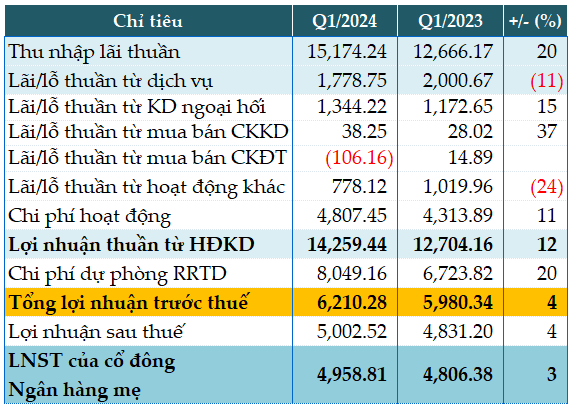Salt is an essential and often cheap ingredient in cooking. On the market, white salt is sold widely at traditional markets, stores, or supermarkets for just a few thousand dong per kilogram. Even Himalayan pink salt, a type of salt that has caused a stir in the market in recent years, is only priced at around 100,000 dong/kg. In addition, Hao Hao salt, a popular salt, is also priced at less than 20,000 dong/120-gram jar (according to Shopee).
However, there is a type of salt that is much more expensive compared to both Hao Hao salt and Himalayan pink salt.

Korean bamboo salt is much more expensive than other types of salt. Photo: Amazon
This special and super expensive salt is bamboo salt. This is a famous type of salt in Korea. The reason why this type of salt is called bamboo salt is because people pour sea salt into bamboo tubes and then roast it. When the bamboo is burnt, the flavors and minerals of the bamboo will blend with the salt to enhance and increase the mineral content.
On the market, premium Korean bamboo salt is priced up to 747,000 dong/90-gram jar (equivalent to about 8.3 million dong/kg). Moreover, in the US, according to Business Insider, each jar of the highest-grade bamboo salt (240 grams) is priced at over 100 USD (nearly 2.5 million dong). This is considered the most expensive salt in the world today.
The question is, why is Korean bamboo salt so expensive?
Why is Korean bamboo salt so expensive?

Koreans put sea salt into bamboo tubes and roast them up to 9 times to make bamboo salt. Photo: BI
The reason turns out to be that bamboo salt is made through a meticulous and complex process with many significant benefits. Specifically, to make bamboo salt, Koreans put natural sea salt into mature bamboo tubes (at least 3 years old).
Then, the bamboo tubes will be tightly sealed with yellow clay (a special type of clay used for pottery in a rural area in Korea) and the salt will be roasted for the first time in the fire with a temperature ranging from 600 to 800 degrees Celsius. The reason why they put salt into bamboo tubes and roast them is to let the flavors of the bamboo and the minerals blend with the salt to form a balance among the minerals.
Afterwards, the salt from the burnt bamboo tubes will be put into other bamboo tubes to roast in subsequent times, with temperatures ranging from 1,300 to 1,500 degrees Celsius. After being heated 9 times at high temperatures in the bamboo tubes, this salt has completely melted and changed color. This mixture will be poured into molds to solidify for a few days. By then, bamboo salt will look like a rock. They will be broken by hand and packaged for sale.

After being heated 9 times, bamboo salt will form a solid block. Salt makers will break and grind these salt blocks. Photo: BI
In fact, the more times bamboo salt is roasted, the more expensive it will be. For example, on the market, the salt roasted once is white and sold for less than 1 million dong/kg. However, with the salt roasted 9 times, which has a natural purple color, it will be sold at the highest price of up to 8.3 million dong/kg.
According to experts, the reason bamboo salt is so expensive is that the process of making this salt requires a lot of labor. Most things are done manually, from putting sea salt into the bamboo tubes to breaking and grinding the solid salt. It takes about 40-45 days to make the high-grade purple bamboo salt by roasting it 9 times.
In addition, an important reason why bamboo salt is tens or even hundreds of times more expensive than other types of salt is that Koreans believe bamboo salt can improve digestion, oral health, skin care, and has anti-inflammatory and anticancer properties.
Bamboo salt has existed in Korea for about 1,000 years. This type of salt was originally used in traditional Korean medicine, as it could support the prevention and treatment of various diseases. In addition, Korean bamboo salt is also used for daily consumption as a seasoning.
Studies also show that Korean bamboo salt has a concentrated mineral composition, high in iron, potassium, and calcium compared to ordinary sea salt. Although scientists have not accurately proven the health benefits, many people believe that consuming bamboo salt can improve immune function and metabolism.
Article references: Korea, Time of India, BI









































